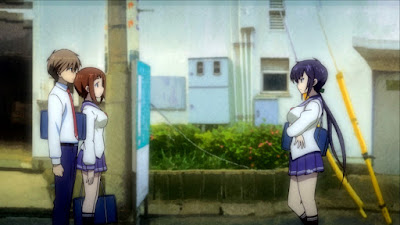Bandai Entertainment Closes Down
Symptoms:
- The North American anime market has shrunk substantially from the past
- Prices of Anime kept on dropping
Symptoms are the the result of what the problems create. In this situation, there are two main symptoms that are a result of all the problems that is in the anime market: prices of anime kept on dropping and the entire market has shrunk substantially from a couple of years ago. In the early to mid 1990's it was the norm to pay $20 for two episodes of a dubbed series and $30 for two episodes of a subbed series. Since then the price has decreased to the point where one can buy an entire season of anime for under $50. While the cost to the end user to collect anime has decreased significantly from the past, the market share of anime has not increased to make up for it. At its high point in 2003, the market was estimated to be worth $4.84 billion dollars. Since then it has shrunk to around $2.74 billion in 2009, which is a decrease of $2.1 billion dollars (source). While we don't have the numbers, since then the market has shrunk further from the low in 2009. The shrinking of the North American market and the decreasing price of anime are the surface symptoms of the problem at hand.
The Problems:
- Value of anime decreased in the eyes of the consumer
- Anime produced now has less mainstream appeal
- Economic downturn affecting sales of niche goods such as anime and manga
- Market acceptance of fansubs and scanlations as substitute goods
There are a couple of problems that are at the core of the situation: decreasing value of anime, the kind of anime being produced having less mainstream appeal, global economy downturn affecting niche products, and a market acceptance of fansubs and scanlations as substitutes. When anime was first released, it was seen as a sort of luxury good since it commanded a higher price. The release of TV show boxed sets started devaluing the cost of anime since people expected anime to command similar values as the boxed sets of American TV shows. This change of expectation lowered the value of it and transformed anime from a luxury good to almost commodity-like status. When looking at the anime being produced now, it seems to have less mainstream appeal than anime released in the past. Part of the reason is because of Japan's own shrinking anime market. To appeal to this shrinking market, many anime studios have entrenched themselves in creating more anime that appeals to the hardcore otaku market. By doing that, they alienate many potential fans in North America who are not used to a more Japan-centric style of storytelling and characterization. The other big piece of the puzzle is the ongoing global recession that started in 2008. Anime and Manga are seen as a luxury good that is bought by a small niche market in North America. As a luxury good it is easy to discard to focus on necessities like gas, food, electricity, and bills. The last is the acceptance of anime fans of scanlations and fansubs as viable substitutions to buying the series. It is almost a necessity to go that route to keep up with what is popular in the fandom and its acceptance makes it easy for people to use it as a substitute for a legal purchase. These four problems combined leads to the symptoms of decreasing anime prices and an ever shrinking North American Market.
Namco Bandai's Solution: Close the North American publishing house, farm out internal series to license and potentially publish in-house using Japanese prices
The Consequences to Namco Bandai's Solution:
- Further shrinking of the North American market
- High prices create high barriers of entry
- Further expansion of Domestic publishers like Funimation and Nippon Ichi Software America
- Anime industry becomes more of a Niche
With Namco Bandai closing the North American publishing house, farming out internal series to license to outside vendors, and potentially publishing in house using the Japanese strategy will lead to a couple of consequences for the North American market. If they publish anime the same way that Aniplex is in North America, basically selling the Japanese Edition of an anime with English Subtitles for a very high price they create high barriers of entry. People that would otherwise buy a series would be too scared to purchase it because of the high price among the core crowd. More casual fans would be hesitant to purchase it because of the fear that it may not live up to expectations. The high barriers of entry in turn will accelerate the shrinking of the North American market to only an ancillary market extension of the Japanese market, instead of a complimentary market. For the series that cannot be sold at a high price, it is licensed out to domestic publishers. The lack of domestic publishers mean that only a few publishers will control a large market.
It is unfortunate that the problems and the ensuing symptoms caused Bandai Namco to shutter Bandai Entertainment. Unfortunately their decision does not address the problems affecting the anime industry and it may in fact exacerbate the problems and further cause market decay.
 |
| No more Code Geass Blu Ray :( |






Comments